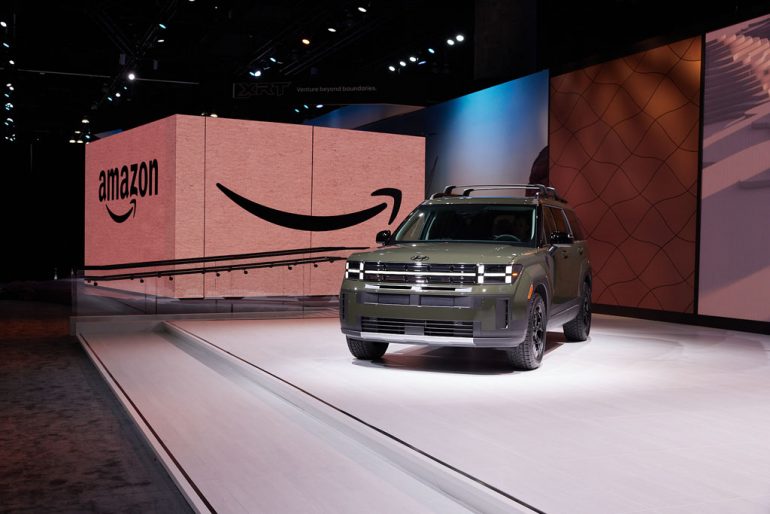
Dealerships in the U.S. are grappling with a mix of sentiments regarding the collaboration between Hyundai Motor and Amazon, contemplating its potential impact on the car-buying landscape and its resemblance to Tesla’s direct sales model. According to a survey conducted by Automotive News, a significant portion of auto retailers harbor reservations about the initiative.
The partnership, unveiled in November, aims to establish an online vehicle retailing program on Amazon, streamlining the car-buying process for consumers by the end of 2024. Amazon’s ambition extends beyond Hyundai, as it intends to extend the streamlined buying experience to other automotive brands, envisioning a click-to-buy model to simplify and expedite car purchases.
Also, don’t forget that you can get discounted new car pricing with a free quote through qualified local dealer partners.
However, skepticism abounds among dealers from various brands, as evidenced by Automotive News’ Dealer Outlook Survey for 2024. Many anticipate a shift towards a direct-to-consumer sales model, echoing concerns about potential repercussions on customer service quality and dealer profitability.
The survey, which garnered feedback from 208 dealers and dealership managers, with 135 specifically addressing the Amazon venture, reveals apprehensions about the gradual erosion of the traditional dealership model. Respondents foresee the Amazon-Hyundai collaboration as a precursor to a factory-direct sales approach akin to that adopted by electric vehicle pioneers like Tesla, Rivian, and Lucid.
Despite assurances from Hyundai to its 841 U.S. dealers that they will retain their significance in the process, doubts persist regarding the long-term viability of dealer-customer relationships in an evolving sales landscape dominated by online platforms. While Hyundai and Amazon are piloting the model with 18 dealers in major markets, concerns linger about the potential disruption to dealership profit streams, particularly in areas like finance and insurance and trade-ins.
Some respondents express skepticism about the sustainability of the Amazon-Hyundai venture, dismissing it as a publicity stunt or predicting its failure. Others raise legal questions regarding antitrust or monopoly laws, questioning the legality of the automaker-retailer partnership.
While the Hyundai-Amazon collaboration promises to revolutionize the car-buying experience, its reception among dealerships reflects a cautious optimism tempered by concerns over its broader implications for the industry’s traditional sales model and dealer-customer dynamics.